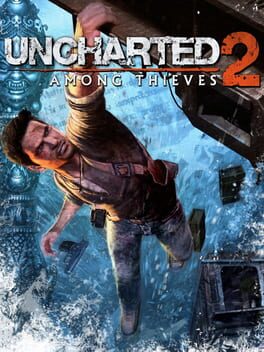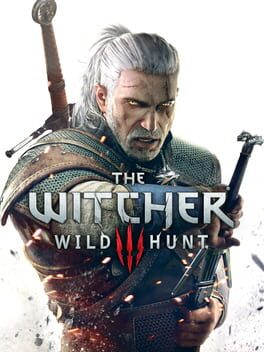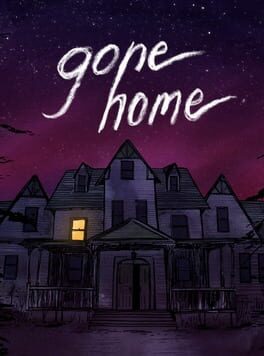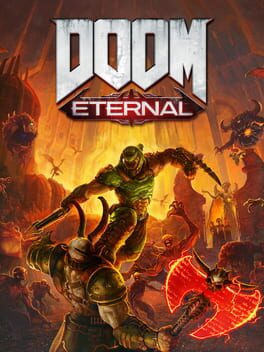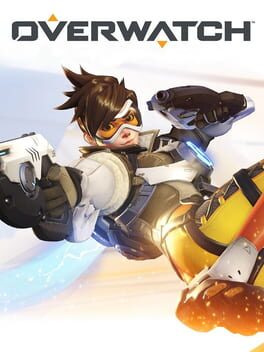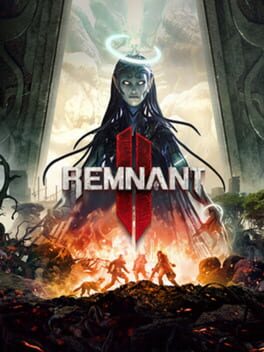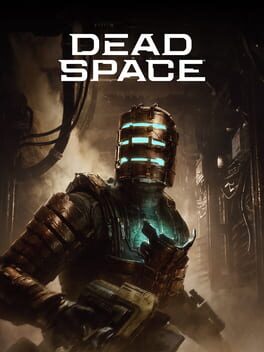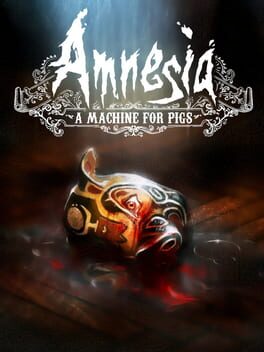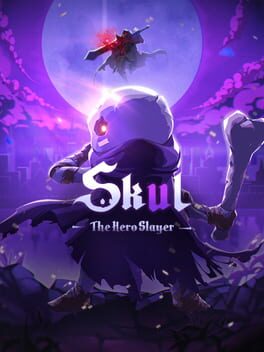Craigjs91
Better than the first, but still suffers from the same issues as its predecessor. Games like this work best when you have peaks and valleys in action when you transition between exploration/puzzle solving and your big set piece action sequences. I understand that their needs to be some action and shooting people, but like with the first game, I found there to be way to many bullet sponge enemies that you need to mow through in order to get to the next part of the story.
I also found the plot to be essentially identical to the first game. Drake gets word of a historical object and goes on an adventure to find it, however he is pursued by generic bad guy who somehow remains one step ahead of him even though drake is the one solving all the puzzles. Drake eventually finds the object and discovers it has supernatural powers only to have it taken away from his at gunpoint, then faces off against the bad guy with all odds against him, but comes out victorious. You might be able to make this argument against any Indiana Jones-esque adventure movie/game but I would just like to see some unique ideas in a game that is usually touted as one of the greats. Again, I'd probably feel a little different if I played it at the time of release but I still enjoy plenty of games from the 2000s so that doesn't totally absolve the game of its issues.
Also a few notes on things that don't make sense narratively.
- how has no one found this mystical city when it is literally visible from the sky.
- In the section where Chloe sets the C4 in the enemy camp then you have to go back there and arm the C4, killing everyone in the camp in the process. Why didn't she just arm it as she set it?
- Drake doesn't bring guns to the museum heist because he doesn't want to kill the guards, but he throws one of them off a building on a drop that is sure to kill him.
I also found the plot to be essentially identical to the first game. Drake gets word of a historical object and goes on an adventure to find it, however he is pursued by generic bad guy who somehow remains one step ahead of him even though drake is the one solving all the puzzles. Drake eventually finds the object and discovers it has supernatural powers only to have it taken away from his at gunpoint, then faces off against the bad guy with all odds against him, but comes out victorious. You might be able to make this argument against any Indiana Jones-esque adventure movie/game but I would just like to see some unique ideas in a game that is usually touted as one of the greats. Again, I'd probably feel a little different if I played it at the time of release but I still enjoy plenty of games from the 2000s so that doesn't totally absolve the game of its issues.
Also a few notes on things that don't make sense narratively.
- how has no one found this mystical city when it is literally visible from the sky.
- In the section where Chloe sets the C4 in the enemy camp then you have to go back there and arm the C4, killing everyone in the camp in the process. Why didn't she just arm it as she set it?
- Drake doesn't bring guns to the museum heist because he doesn't want to kill the guards, but he throws one of them off a building on a drop that is sure to kill him.
What makes this game so great is that the side quests are so much more complex than most open world RPGs. Where most games side quests consist of fetch quests and kill 10 pigs or generic crap like that. The Witcher 3 instead, has fully fleshed out stories for side quests that have narrative arcs, character development, and twists and turns not usually found in most side quests in games like it. This aspect alone makes the game feel so alive and interesting. Along with this, the combat is great, the main story is superb, voice acting is top notch. I can't really think of anything negative about this game to be honest. Definitely one of the best open world RPGs ever made.
2022
Dave the Diver is full of style and charm and made me smile more than any game in recent memory. The pixel art cut scenes full of over the top anime-isms are totally endearing and wildly creative. There is a really interesting pairing of gameplay elements here: part Subnautica-esque deep sea exploration, part star-dew valley style resource management game, part restaurant management game ala overcooked. It sounds like it would be really difficult for a game like this to work but somehow it comes together quite well. The game also sprinkles in new minigames and mechanics at the drop of a hat to keep things interesting. These are often loving throwbacks to classic games or comedic nods to some element of pop culture. Most of these sections will put a smile on your face and even the ones that don't never overstay their welcome so even when they miss the mark a bit they will at least not bore you.
This is going to seem odd here, but the same thing I just complimented the game for also becomes my main critique; that is that the game feels like it should be a 5-10 hour experience but the developers keep trying to cram new things into it to increase the runtime. Because pretty much every day involves generally the same loop of fishing, checking on the garden, possibly progressing the story, and maybe playing a minigame before running the sushi restaurant at night 50-75% of what you do every loop will be the same thing you've done dozens of times already. This begins to drag towards the end and I ended up just trying to hurry up and finish it so I didn't reach my limit and abandon ship (ship... get it, diving pun, yes!). Even with this lull at the end I still really enjoyed my time with the game in total. Though when I think about Dave the Diver I am reminded of the difference between the American and British version of The Office. Remember kids, most of the time it's best to leave the audience wanting more instead of giving them more and more until they lose interest.
This is going to seem odd here, but the same thing I just complimented the game for also becomes my main critique; that is that the game feels like it should be a 5-10 hour experience but the developers keep trying to cram new things into it to increase the runtime. Because pretty much every day involves generally the same loop of fishing, checking on the garden, possibly progressing the story, and maybe playing a minigame before running the sushi restaurant at night 50-75% of what you do every loop will be the same thing you've done dozens of times already. This begins to drag towards the end and I ended up just trying to hurry up and finish it so I didn't reach my limit and abandon ship (ship... get it, diving pun, yes!). Even with this lull at the end I still really enjoyed my time with the game in total. Though when I think about Dave the Diver I am reminded of the difference between the American and British version of The Office. Remember kids, most of the time it's best to leave the audience wanting more instead of giving them more and more until they lose interest.
2013
A teenage girl coming of age story masquerading as a horror game sounds like something that wouldn't work but somehow this game pulls it off really well. I would actually go as far as to say that without the scary, haunted house vibe the game portrays this game wouldn't work nearly as well.
Some people might be turned off by the gameplay which is essentially just walking around a house picking up objects and looking at them. Hopefully you are okay with that style of game because there is truly a deep emotional story here with a couple of twists and turns that will seriously tug at your heart strings.
Some people might be turned off by the gameplay which is essentially just walking around a house picking up objects and looking at them. Hopefully you are okay with that style of game because there is truly a deep emotional story here with a couple of twists and turns that will seriously tug at your heart strings.
2021
The downfall of Inscryption is that act one was by far the best part of the game. I respect the attempt to shuffle genres and all the meta commentary but when your game peaks in the first quarter, it makes for a disappointing experience. However the first act of the game is really good. I loved the mysterious and dark tone, and I don't think I've ever seen a card game with horror elements. Maybe wait for a sale, but the first act alone makes the game worth playing and the rest isn't bad, it just doesn't reach the heights of the first act.
2020
Essentially cocaine in video game form. Doom Eternal is an expertly crafted experience that uses clever game mechanics and a great soundtrack to push the pace of the action. When you are playing the game correctly you enter a sort of flow state where you are zipping around the arena dispatching hellspawn like a murderous pinball using your full arsenal of weapons to bring the armies of hell to it's knees. When it all clicks the feeling the game gives you is a singular one that I don't think any game has achieved before. Simply put, this game is momentum personified.
This review contains spoilers
This game is a tough one for me. I'll start with the positives because I don't want to sound like I hated everything about this game because I definitely didn't but I do have a few serious issues that really irked me. The gameplay is so brutal and intense and much improved from the previous game. The voice acting is amazing as usual with naughty dog games. I respect what they were going for, they took a chance on something they knew would be controversial to tell the story they wanted and it worked... Maybe a little too well.
I'm just going to write out my issues in a numbered list for formatting purposes because I'm sure this will meander a little bit.
1. The first problem for me was that I felt the decision to kill Joel like 30 minutes into the game was pretty dirty considering Joel was all over the advertising material. At this point in the game I imagine a large chunk of the fanbase checked out immediately, however, I kept chugging along to see where it went. This action did exactly what they wanted it to do... It made me hate Abby with a burning intensity that no game has come close to before. In the next 10-15 hours of gameplay we play as Ellie going on an understandable but reckless quest of revenge that gets increasingly more violent and dark as it goes. Following the climax of Ellies portion we then get to "enjoy" the next 10-15 hours of the game playing as the person we hate, to see the story from her perspective. Again I get what they are trying to do here, everyone has a reason for the decisions they make and violence begets violence and all that jazz. However a number of issues spring from this decision to split the game into two separate halves, I will elaborate in the next few numbered items.
2. This split is totally jarring and occurs right at the climax of the main story and gives a serious kick in the balls to the pacing of the game.
3. This one is a negative to me, but some people might have enjoyed this part but I didn't want to play as Abby, I hated Abby, and the designers purposely made me hate Abby. Something about this just comes off manipulative to me. Ellie's section comes off uber violent and ruthless, she tortures people, she kills doggos (unavoidable on at least 2 counts), she kills a pregnant person (even though imo her hand was somewhat forced). Abby however, throws tennis balls to doggos, she saves a young outcast of the cultists, she comes off as heroic and good (for the most part). This manipulation really bothers me because they forced me to kill the dog, they forced me to kill the pregnant girl, they forced me to torture the woman for information. These weren't my decisions and I didn't want to do any of them. Again I get that the whole point is to make you see that no one is purely evil or good, and the decisions we make have downstream effects on everyone but I just found this to be a bad way to drive the point. I felt like I was being reprimanded for a decision that the game designers wrote into the game intentionally only to rub it in my face later. Almost like getting mad at your dog for peeing in the house even though you refuse to walk him or let him outside. The term Ludonarrative Dissonance describes this conflict perfectly. The games narrative wants us to feel guilty for our bloody rampage through Seattle but the game is designed in such a way where the minute to minute gameplay promotes and revels in large scale violence.
4. The decision to make you fight Ellie as Abby was insane. I've never lost a boss fight on purpose before. I don't care how much they tried to force me to care about Abby, she killed Joel, it was that simple to me. I must have let Ellie kill me purposely like 5 times.
5. After the Abby section we finally get back to the theater and get to see what is seemingly the finale of the game. Ellie has learned that revenge is a selfish desire and only causes more problems and returns home with her partner and child. But then completely out of character and without any real explanation as to logistically how this could happen Tommy has information that Abby is in Santa Barbara and essentially calls Ellies love for Joel into question because she doesn't want to travel across the country to try to kill Abby again. This is so out of character for Tommy, did we forget that he willingly went to try and handle the WLF by himself in order to stop Ellie from putting herself in danger at the beginning of the game? So what, he lost an eye so now he wants Abby dead more than when she killed his brother and beat the crap out him? It just makes no sense. So the loop essentially begins again, Ellie goes out to seek revenge one last time, and what happens? Ellie goes all that way for essentially nothing... Again. Ellie's presence actually works out pretty well for Abby because she is saved from the group of bandits, granted she has to take a beating from Ellie but still. Ultimately this again works out where Ellie is the one who comes up with the short stick, she loses her fingers and can no longer play the guitar Joel gave her. And this brings me to my next issue.
6. The punishment seems to be so one sided in this game. Both Abby and Ellie follow the cycle of violence and revenge, Abby just gets her ultimate revenge earlier on. If anything Ellie is on morally superior ground because she could have killed her main target and chose not to, whereas Abby did follow through with killing Joel. However the story seems to punish Ellie so much more than Abby, Ellie loses her friends, her significant other, her kid, her father figure, her mental health, her fingers and subsequently her most loved hobby. She is a broken husk of her former self by the end of the game... Abby on the other hand loses a couple of friends and does go through some tough events with the bandits at the end but she has gained a true friend and partner in Lev, has a purpose, and is in a pretty good place mentally. Part 2 just seems to show so much favoritism to Abby compared its main characters. Joel gets brutally murdered 30 minutes into the game and Ellie is just a broken shell of who she used to be by the end credits.
7. The attempt to retcon Joel's decision in the first game to seem like it was purely selfish and evil was unforgivable to me. The most egregious display of this is Abby's father AKA the surgeon who got in the way. In the first game the surgeon operating on Ellie has sunken in eyes with dark black rings around them. He is wearing dingy green scrubs and giving off almost mad scientist vibes. The operating room is disorganized and dirty with a nice layer of filth on pretty much every surface. The setup doesn't inspire confidence and only helps convince you that you are doing the right thing. However in part 2, the surgeon is clean, well rested, and now wearing shiny new blue scrubs. The operating room is nice and clean with none of the aforementioned filth on the walls and equipment. They also go out of their way to show that he saves Zebras and is a really nice man who is struggling with the ethical dilemma in front of him. There was a clear change in tone here and it's just so obvious that it is off-putting to me.
The thing that made the first game great was that Ellie was a beacon of light in a horrible and dark world. She had unshakeable optimism and hope even though she had been through so much and this made her worth saving. The fireflies slogan is literally "when you are lost in darkness, look for the light"... Ellie was that light!!! It doesn't get more on the nose than that, and this is why so many people understood Joel's decision at the end of the game whether they agreed with it or not. And the writers respected the audience to make up their own mind about the final decision. Not in part 2 though... part 2 tells you exactly how you should feel, and that feeling is sad and empty. This game spits in the face of that light in the darkness theme by overloading the player with nihilism and cynicism. The world was already extremely bleak and when you turn the moral center of the game into a bloodthirsty asshole it just makes the game hard to get through and ultimately that's where I stand. I don't hate the game, but I can honestly say I don't think I will ever want to play it again because there is simply nothing endearing about it... unless you are into wallowing in a pit of despair.
I'm just going to write out my issues in a numbered list for formatting purposes because I'm sure this will meander a little bit.
1. The first problem for me was that I felt the decision to kill Joel like 30 minutes into the game was pretty dirty considering Joel was all over the advertising material. At this point in the game I imagine a large chunk of the fanbase checked out immediately, however, I kept chugging along to see where it went. This action did exactly what they wanted it to do... It made me hate Abby with a burning intensity that no game has come close to before. In the next 10-15 hours of gameplay we play as Ellie going on an understandable but reckless quest of revenge that gets increasingly more violent and dark as it goes. Following the climax of Ellies portion we then get to "enjoy" the next 10-15 hours of the game playing as the person we hate, to see the story from her perspective. Again I get what they are trying to do here, everyone has a reason for the decisions they make and violence begets violence and all that jazz. However a number of issues spring from this decision to split the game into two separate halves, I will elaborate in the next few numbered items.
2. This split is totally jarring and occurs right at the climax of the main story and gives a serious kick in the balls to the pacing of the game.
3. This one is a negative to me, but some people might have enjoyed this part but I didn't want to play as Abby, I hated Abby, and the designers purposely made me hate Abby. Something about this just comes off manipulative to me. Ellie's section comes off uber violent and ruthless, she tortures people, she kills doggos (unavoidable on at least 2 counts), she kills a pregnant person (even though imo her hand was somewhat forced). Abby however, throws tennis balls to doggos, she saves a young outcast of the cultists, she comes off as heroic and good (for the most part). This manipulation really bothers me because they forced me to kill the dog, they forced me to kill the pregnant girl, they forced me to torture the woman for information. These weren't my decisions and I didn't want to do any of them. Again I get that the whole point is to make you see that no one is purely evil or good, and the decisions we make have downstream effects on everyone but I just found this to be a bad way to drive the point. I felt like I was being reprimanded for a decision that the game designers wrote into the game intentionally only to rub it in my face later. Almost like getting mad at your dog for peeing in the house even though you refuse to walk him or let him outside. The term Ludonarrative Dissonance describes this conflict perfectly. The games narrative wants us to feel guilty for our bloody rampage through Seattle but the game is designed in such a way where the minute to minute gameplay promotes and revels in large scale violence.
4. The decision to make you fight Ellie as Abby was insane. I've never lost a boss fight on purpose before. I don't care how much they tried to force me to care about Abby, she killed Joel, it was that simple to me. I must have let Ellie kill me purposely like 5 times.
5. After the Abby section we finally get back to the theater and get to see what is seemingly the finale of the game. Ellie has learned that revenge is a selfish desire and only causes more problems and returns home with her partner and child. But then completely out of character and without any real explanation as to logistically how this could happen Tommy has information that Abby is in Santa Barbara and essentially calls Ellies love for Joel into question because she doesn't want to travel across the country to try to kill Abby again. This is so out of character for Tommy, did we forget that he willingly went to try and handle the WLF by himself in order to stop Ellie from putting herself in danger at the beginning of the game? So what, he lost an eye so now he wants Abby dead more than when she killed his brother and beat the crap out him? It just makes no sense. So the loop essentially begins again, Ellie goes out to seek revenge one last time, and what happens? Ellie goes all that way for essentially nothing... Again. Ellie's presence actually works out pretty well for Abby because she is saved from the group of bandits, granted she has to take a beating from Ellie but still. Ultimately this again works out where Ellie is the one who comes up with the short stick, she loses her fingers and can no longer play the guitar Joel gave her. And this brings me to my next issue.
6. The punishment seems to be so one sided in this game. Both Abby and Ellie follow the cycle of violence and revenge, Abby just gets her ultimate revenge earlier on. If anything Ellie is on morally superior ground because she could have killed her main target and chose not to, whereas Abby did follow through with killing Joel. However the story seems to punish Ellie so much more than Abby, Ellie loses her friends, her significant other, her kid, her father figure, her mental health, her fingers and subsequently her most loved hobby. She is a broken husk of her former self by the end of the game... Abby on the other hand loses a couple of friends and does go through some tough events with the bandits at the end but she has gained a true friend and partner in Lev, has a purpose, and is in a pretty good place mentally. Part 2 just seems to show so much favoritism to Abby compared its main characters. Joel gets brutally murdered 30 minutes into the game and Ellie is just a broken shell of who she used to be by the end credits.
7. The attempt to retcon Joel's decision in the first game to seem like it was purely selfish and evil was unforgivable to me. The most egregious display of this is Abby's father AKA the surgeon who got in the way. In the first game the surgeon operating on Ellie has sunken in eyes with dark black rings around them. He is wearing dingy green scrubs and giving off almost mad scientist vibes. The operating room is disorganized and dirty with a nice layer of filth on pretty much every surface. The setup doesn't inspire confidence and only helps convince you that you are doing the right thing. However in part 2, the surgeon is clean, well rested, and now wearing shiny new blue scrubs. The operating room is nice and clean with none of the aforementioned filth on the walls and equipment. They also go out of their way to show that he saves Zebras and is a really nice man who is struggling with the ethical dilemma in front of him. There was a clear change in tone here and it's just so obvious that it is off-putting to me.
The thing that made the first game great was that Ellie was a beacon of light in a horrible and dark world. She had unshakeable optimism and hope even though she had been through so much and this made her worth saving. The fireflies slogan is literally "when you are lost in darkness, look for the light"... Ellie was that light!!! It doesn't get more on the nose than that, and this is why so many people understood Joel's decision at the end of the game whether they agreed with it or not. And the writers respected the audience to make up their own mind about the final decision. Not in part 2 though... part 2 tells you exactly how you should feel, and that feeling is sad and empty. This game spits in the face of that light in the darkness theme by overloading the player with nihilism and cynicism. The world was already extremely bleak and when you turn the moral center of the game into a bloodthirsty asshole it just makes the game hard to get through and ultimately that's where I stand. I don't hate the game, but I can honestly say I don't think I will ever want to play it again because there is simply nothing endearing about it... unless you are into wallowing in a pit of despair.
2016
As with most Blizzard games the level of polish is outstanding. They created an interesting world with tons of interesting characters who all felt unique and paired it with some really engaging gameplay that when in sync with your group feels great. Sounds almost perfect right?
The issue is it's almost too well produced, like it was made to appeal to literally everyone, it comes off almost soulless to me. Every map is intricately designed for skirmishes to happen in very specific areas. You feel the heavy hand of matchmaking purposefully pulling you towards a 50% win rate so everyone can be happy. It's just such an intensely curated experience that it felt wrong in some way. It reminded me of modern music and how it being all digital and autotuned nowadays has removed the human error that gives music its feeling, it makes me think of smart phones that are indistinguishable from other brands and the apps on them that have been meticulously designed to draw your attention for long periods of time.
This isn't to say I hated the game, on the contrary it was really fun and I enjoyed it very much. After a while though, playing it just felt wrong to me, not sure exactly why.
The issue is it's almost too well produced, like it was made to appeal to literally everyone, it comes off almost soulless to me. Every map is intricately designed for skirmishes to happen in very specific areas. You feel the heavy hand of matchmaking purposefully pulling you towards a 50% win rate so everyone can be happy. It's just such an intensely curated experience that it felt wrong in some way. It reminded me of modern music and how it being all digital and autotuned nowadays has removed the human error that gives music its feeling, it makes me think of smart phones that are indistinguishable from other brands and the apps on them that have been meticulously designed to draw your attention for long periods of time.
This isn't to say I hated the game, on the contrary it was really fun and I enjoyed it very much. After a while though, playing it just felt wrong to me, not sure exactly why.
I've always viewed liminal spaces as the architectural version of the uncanny valley phenomenon. A place that generally makes sense but is just... off enough to produce feelings of uneasiness and unfamiliarity. In The Complex: Found Footage this concept is explored impressively well for what I can only assume was either a solo effort or a really small team of people probably working for free just trying to create something cool and interesting.
Whether it be a sprawling open but totally empty space, a library devoid of books, a child's playroom with no children or toys, an art gallery housing no art, or the drab yellow wallpapered rooms and corridors that never seem to totally release you from their nightmarish grasp, these areas make just enough sense that you feel grounded but they are totally missing that human element that gives them purpose. Adding to this these rooms are often connected and shaped in ways that are simply illogical in terms of function but clearly not intentionally done for artistic purposes either. It's almost like these rooms were created by some malfunctioning rogue artificial intelligence with no off switch and no true understanding of humanity or the function these spaces serve, instead only a vague understanding of the form: enclosed by walls, floor and a ceiling, at least one entrance, sometimes with wallpaper for decoration. These are human environments not built by or for humans and there is something particularly eerie about that.
The game loses some of it's spark in the final act with some less inspired environments and trying to vaguely explain some semblance of story but those first handful of areas really touched on something quite special. And for a game that is totally free and provided me with a unique experience, how could I not recommend it.
Whether it be a sprawling open but totally empty space, a library devoid of books, a child's playroom with no children or toys, an art gallery housing no art, or the drab yellow wallpapered rooms and corridors that never seem to totally release you from their nightmarish grasp, these areas make just enough sense that you feel grounded but they are totally missing that human element that gives them purpose. Adding to this these rooms are often connected and shaped in ways that are simply illogical in terms of function but clearly not intentionally done for artistic purposes either. It's almost like these rooms were created by some malfunctioning rogue artificial intelligence with no off switch and no true understanding of humanity or the function these spaces serve, instead only a vague understanding of the form: enclosed by walls, floor and a ceiling, at least one entrance, sometimes with wallpaper for decoration. These are human environments not built by or for humans and there is something particularly eerie about that.
The game loses some of it's spark in the final act with some less inspired environments and trying to vaguely explain some semblance of story but those first handful of areas really touched on something quite special. And for a game that is totally free and provided me with a unique experience, how could I not recommend it.
2023
Clearly not designed to be played single player yet gives you the option to do so, so the creators don't get a pass and should have put in the work to make it less of a slog to get through solo by adjusting boss health, damage, or maybe even attack frequency. Just be forewarned that I will be judging this game from my single player experience and if you are a fan of multiplayer experiences I'm sure your feelings may be different.
Remnant II is another one of these mediocre games that is trying so hard to be a Fromsoft game yet is just screaming to be more of an ARPG looter shooter like Borderlands. Wandering around sprawling levels killing trash mobs and the occasional miniboss type enemy is where this game shines. These sections are quite enjoyable as you dispatch waves of enemies, loot upgrade materials, complete side quests, and search for hidden chests filled with juicy loot. The game however felt the need to plop these poorly designed Dark Souls-esque bosses at the end of each of these levels and this brings me to my primary complaint of the game.
The punishing difficulty just doesn't work here as the clunky controls, awfully slow reload times, and bullet sponginess of bosses are what makes it difficult not the actual boss mechanics. Being hard because you have to dodge the same two attacks fifty times in a row and hope the jankiness of the controls don't screw you over half way through the fight is not fun nor rewarding, it's basically just rolling dice and praying the right number hits. And who decided that instant death attacks were a good idea in a game where you frequently have to stop looking at the boss to fight other trash mobs or look for ammo? When have instant death attacks ever been a good idea in general?
Awful boss fights aside, the rest of the game is actually quite fun... Not great by any stretch of the imagination and definitely gets a bit repetitive, but fun enough to keep your interest for a while.
P.S. The game crashes way too frequently for one that has been out this long. Averaging about one crash per 2-3 hours of gameplay.
P.P.S. The Labyrinth Sentinel boss fight might be the worst boss fight ever created in a game. What a joke this fight is.
Remnant II is another one of these mediocre games that is trying so hard to be a Fromsoft game yet is just screaming to be more of an ARPG looter shooter like Borderlands. Wandering around sprawling levels killing trash mobs and the occasional miniboss type enemy is where this game shines. These sections are quite enjoyable as you dispatch waves of enemies, loot upgrade materials, complete side quests, and search for hidden chests filled with juicy loot. The game however felt the need to plop these poorly designed Dark Souls-esque bosses at the end of each of these levels and this brings me to my primary complaint of the game.
The punishing difficulty just doesn't work here as the clunky controls, awfully slow reload times, and bullet sponginess of bosses are what makes it difficult not the actual boss mechanics. Being hard because you have to dodge the same two attacks fifty times in a row and hope the jankiness of the controls don't screw you over half way through the fight is not fun nor rewarding, it's basically just rolling dice and praying the right number hits. And who decided that instant death attacks were a good idea in a game where you frequently have to stop looking at the boss to fight other trash mobs or look for ammo? When have instant death attacks ever been a good idea in general?
Awful boss fights aside, the rest of the game is actually quite fun... Not great by any stretch of the imagination and definitely gets a bit repetitive, but fun enough to keep your interest for a while.
P.S. The game crashes way too frequently for one that has been out this long. Averaging about one crash per 2-3 hours of gameplay.
P.P.S. The Labyrinth Sentinel boss fight might be the worst boss fight ever created in a game. What a joke this fight is.
2023
Probably an unpopular opinion but I personally enjoyed this game much more than the first. I found the story and environment so compelling and actually preferred the more toned down horror elements. It had some really tense parts but it gave you more time in between scares for you to breath. This decision worked well because it created rising and falling action which made for very good pacing. Also, in my opinion freaky pig/man hybrids are way more scary than the little gooby shambling monsters in the dark decent. Lastly, the ending is simply magnificent, expert level writing there.
PS. Jessica Curry created a masterful score for this game especially the music that plays during the climax of the game.
PS. Jessica Curry created a masterful score for this game especially the music that plays during the climax of the game.
2012
Visually gorgeous, metaphorically deep, tonally sophisticated, In practice however... Kind of hollow. One of the artsy games that needs a little more "game" to reach the heights it potentially could have. I mean mechanically speaking, more than half of the game is literally just holding up on the joystick.
Low key one of the best roguelites out there. Circumvents the repetitive grind of most games of its ilk by having totally different gameplay based on what skulls you roll. Has tons of replay value even after having beaten the final boss due to the sheer amount of build variety.
Unpopular opinion: I liked this game significantly more than Hades.
Unpopular opinion: I liked this game significantly more than Hades.
2023
A rare soulslike that sets itself apart from the growing list the genre has to offer by both creating an interesting and unique world that isn't just a generic copy of the dark, mysterious tone that Dark Souls made famous and by totally nailing the tough but fair combat mechanics that are a necessity for a game with this type of difficulty level.
The world is unique and feels like a fully realized idea. You can tell there was some real inspiration and vision here, it's not just a generic dark, grim world where everyone is vaguely sad and speaks in riddles. Some real thought went into crafting this world and it really stands out when compared to most games in the genre. I really can't overstate just how impressed I was with the ability to pull off such an interesting take on such an old and well explored story like Pinocchio and how well it works without feeling derivative or cheesy at all. Truly impressive stuff here.
The biggest reason most soulslikes fall short for me is that a lot of them don't seem to understand the balance that has to be struck between the combat controls and difficulty. If your game has enemies that constantly attack at a fervent pace, your character must be equipped with tools to deal with that (think Sekiro's parry and lack of stamina gauge for example) or if you want to restrict the pace of combat (with stamina bars that cap how many actions you can take in a certain period of time) you must design your enemies with those choices in mind. If you don't get this balance totally correct then the game will feel either extremely unfair or too easy; most souls clones seem to fall on the unfair side. Lies of P however hits this balance perfectly in their own unique way that is like a hybrid of Bloodborne and Sekiro. Lies of P chooses to give you a stamina bar and also the ability to block or parry. Blocking will still damage you but allows you to regain some of the lost health by landing attacks on an enemy (similar to the rally mechanic in BB) - landing a parry, while more risky, will not only cause you to avoid all damage, but will also damage the enemies posture meter (similar to Sekiro). This setup works perfectly with the boss design where most boss fights will attack with multi-hit flurries then give you a small window of time to punish and regain stamina.
My only complaint here is that once you get to a certain point pretty much every boss has multiple phases sometimes changing their move set once you hit a certain percentage of their health bar and sometimes waiting until you deplete their health completely before changing form and you having to start from scratch against totally new mechanics. Something about this just feels a little cheap to me as there's really no way of knowing if a boss has a second phase the first time you fight them. Sometimes you can feel it coming as the fight will be a little easy so you expect it, but other times the first phase feels hard enough to be a single phase fight then out of nowhere they restore all health and gain a whole new, usually more difficult, move set. This type of multiphase design essentially means that more often than not you will die at least once or twice on every fight because you'll use all your healing items learning phase one and have none remaining for phase two. So it turns into a practice makes perfect style of fight where you have to get good enough at phase one to make it through with enough health and healing items to conquer phase two. In a game like this learning a lesson usually means taking a significant amount of damage, and you can only afford so many mistakes per attempt so it just seems pretty lame to make us learn so many lessons for one fight. I think about it almost like if you are in school and your teacher gives you a test and then, much to your chagrin, as soon as you finish they hand you a whole other test that you weren't informed about. Some people might think this is a good thing, but I found it to be an annoyance especially towards the end where most of the phase one fights are hard enough to be their own singular boss fight.
Other than that one issue , I genuinely enjoyed this game and it is probably my favorite non-Fromsoft soulslikes that I've played (that isn't also a 2D metroidvania anyway) and I would recommend to anyone who is a fan of the genre.
The world is unique and feels like a fully realized idea. You can tell there was some real inspiration and vision here, it's not just a generic dark, grim world where everyone is vaguely sad and speaks in riddles. Some real thought went into crafting this world and it really stands out when compared to most games in the genre. I really can't overstate just how impressed I was with the ability to pull off such an interesting take on such an old and well explored story like Pinocchio and how well it works without feeling derivative or cheesy at all. Truly impressive stuff here.
The biggest reason most soulslikes fall short for me is that a lot of them don't seem to understand the balance that has to be struck between the combat controls and difficulty. If your game has enemies that constantly attack at a fervent pace, your character must be equipped with tools to deal with that (think Sekiro's parry and lack of stamina gauge for example) or if you want to restrict the pace of combat (with stamina bars that cap how many actions you can take in a certain period of time) you must design your enemies with those choices in mind. If you don't get this balance totally correct then the game will feel either extremely unfair or too easy; most souls clones seem to fall on the unfair side. Lies of P however hits this balance perfectly in their own unique way that is like a hybrid of Bloodborne and Sekiro. Lies of P chooses to give you a stamina bar and also the ability to block or parry. Blocking will still damage you but allows you to regain some of the lost health by landing attacks on an enemy (similar to the rally mechanic in BB) - landing a parry, while more risky, will not only cause you to avoid all damage, but will also damage the enemies posture meter (similar to Sekiro). This setup works perfectly with the boss design where most boss fights will attack with multi-hit flurries then give you a small window of time to punish and regain stamina.
My only complaint here is that once you get to a certain point pretty much every boss has multiple phases sometimes changing their move set once you hit a certain percentage of their health bar and sometimes waiting until you deplete their health completely before changing form and you having to start from scratch against totally new mechanics. Something about this just feels a little cheap to me as there's really no way of knowing if a boss has a second phase the first time you fight them. Sometimes you can feel it coming as the fight will be a little easy so you expect it, but other times the first phase feels hard enough to be a single phase fight then out of nowhere they restore all health and gain a whole new, usually more difficult, move set. This type of multiphase design essentially means that more often than not you will die at least once or twice on every fight because you'll use all your healing items learning phase one and have none remaining for phase two. So it turns into a practice makes perfect style of fight where you have to get good enough at phase one to make it through with enough health and healing items to conquer phase two. In a game like this learning a lesson usually means taking a significant amount of damage, and you can only afford so many mistakes per attempt so it just seems pretty lame to make us learn so many lessons for one fight. I think about it almost like if you are in school and your teacher gives you a test and then, much to your chagrin, as soon as you finish they hand you a whole other test that you weren't informed about. Some people might think this is a good thing, but I found it to be an annoyance especially towards the end where most of the phase one fights are hard enough to be their own singular boss fight.
Other than that one issue , I genuinely enjoyed this game and it is probably my favorite non-Fromsoft soulslikes that I've played (that isn't also a 2D metroidvania anyway) and I would recommend to anyone who is a fan of the genre.
